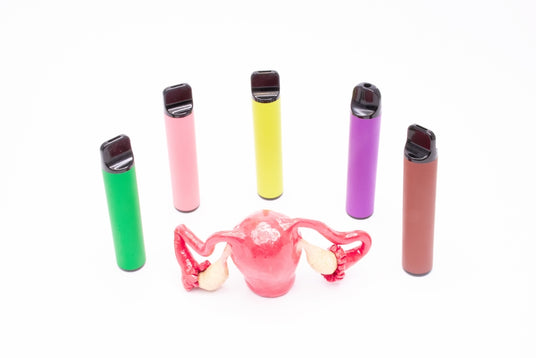Does Vaping Affect Fertility? What the Science Says
The long-term health implications of vaping are a subject of ongoing research. While evidence that vaping can be a useful tool for people quitting smoking and reduce harm compared to traditional cigarette use, the impact of e-cigarettes on long-term health, particularly reproductive health and fertility, remains a key area of investigation. The relatively recent emergence of vapes, in comparison to decades of smoking cigarettes, means comprehensive long-term data is still emerging. Furthermore, many existing study suggests focus on former smokers transitioning to vaping, making it challenging to isolate the sole effects of vaping.
Understandably, many individuals considering vaping as an alternative to smoking are asking crucial questions about its safety, especially concerning their ability to conceive and have a healthy baby. Concerns are particularly relevant given the well-established negative links between smoking and reduced fertility, as highlighted by the NHS. This leads to the important question: does smoking or vaping have similar detrimental effects on our ability to have children?

The Interplay Between Vaping, Smoking, and Fertility
Current research indicates that vaping can affect fertility in ways similar to smoking. A primary concern is the presence of nicotine in most vaping products and traditional tobacco products. While Public Health England (PHE) has stated that e-cigarettes are around 95% less harmful than smoking in terms of overall chemical exposure, it's crucial to understand that vaping is not risk-free. Nicotine and other chemicals present can have significant consequences.
For male fertility, studies have shown that nicotine can negatively impact sperm, hindering their ability to function correctly and potentially leading to a lower sperm count. The NHS explicitly advises men to stop smoking to improve fertility, noting that male smokers have lower sperm counts. A 2020 review explored the effects of electronic cigarette vapor on sperm and found negative impacts on motility and viability.
The impact on female fertility is equally concerning. The NHS states that "women who smoke can experience reduced fertility levels and are over three times more likely than non-smokers to take longer than a year to get pregnant". They cite a study found that "the fertility of smoking women was 72% less than that of non-smokers."
Specialist fertility clinics, such as OC Fertility in California, also advise caution, stating that "those considering in vitro fertilisation should reconsider using any kind of nicotine delivery system or product". They highlight potential negative effects on egg quality. Similarly, One Fertility Kitchener Waterloo emphasizes the potential for vaping on reproductive health for both men and women.
Emerging research continues to shed light on the potential mechanisms. A University of North Carolina study explored the impact of e-cigarette aerosols on the uterus and implantation, suggesting potential negative effects on the early stages of pregnancy. While more research is needed to fully understand these mechanisms in humans, these findings raise concerns about the impact of vaping may on the ability to conceive and maintain a healthy pregnancy.

Can Quitting Vaping Improve Fertility Problems?
Logically, ceasing the consumption of substances known to negatively impact reproductive function should improve one's chances of conceiving. Therefore, the answer to "Will stopping Vaping Increase My Fertility?" is likely yes. By eliminating nicotine and other potential chemicals found in vape juice, individuals can reduce the potential harm to their sperm and ovarian function.
The World Health Organization (WHO) also highlights the negative impact on reproductive health associated with tobacco products and advises against their use for those planning to get pregnant. While they primarily focus on smoking, the presence of nicotine in many e-cigarettes suggests a similar cautionary approach regarding vaping.
However, it's crucial to acknowledge the limitations in current research specifically on vaping cause infertility. As mentioned earlier, many studies involve former smokers, making it difficult to isolate the sole effects of vaping. Ideally, research would focus on individuals who have only ever used e-cigarettes.
The Importance of Expert Advice
Given the complexities and the ongoing nature of research into the impact of vaping on fertility, the best course of action for anyone concerned about how nicotine or vaping affects their ability to have children is to consult with their GP or a fertility specialist. These healthcare professionals can provide personalized advice based on your individual medical history and the most up-to-date understanding of the science.
While vaping is often presented as a safer alternative to smoking, it is not without risks, particularly when it comes to reproductive health. If you are trying to conceive or are concerned about your fertility, discussing your smoking or vaping habits with a healthcare professional is a crucial step towards protecting your chance of conceiving and having a healthy baby.
Frequently Asked Questions
Vaping and Fertility
Can vaping affect my fertility?
Can vaping affect my fertility?
Current research suggests that vaping can negatively impact both male and female fertility. This is primarily attributed to the presence of nicotine and other chemicals in vape products.
Is vaping safer for fertility than smoking cigarettes?
Is vaping safer for fertility than smoking cigarettes?
While vaping is generally considered less harmful than smoking in terms of overall chemical exposure, it is not risk-free. Nicotine, a key component in most vapes, has been linked to negative effects on both sperm and egg health, potentially impacting fertility.
Are nicotine-free vapes safe for fertility?
Are nicotine-free vapes safe for fertility?
While nicotine is a primary concern, vape juice can contain other chemicals that may have unknown long-term effects on reproductive health. More research is needed to fully understand the safety of nicotine-free vaping when trying to conceive.
Where can I find more information about vaping and fertility?
Where can I find more information about vaping and fertility?
Consult the sources linked in the blog post and speak with your GP or a fertility specialist for personalized advice and the most up-to-date information.
Can vaping affect the success of IVF treatment?
Can vaping affect the success of IVF treatment?
Fertility clinics often advise against the use of any nicotine delivery systems, including vapes, for individuals undergoing IVF treatment, as it may negatively impact egg quality and treatment outcomes.



